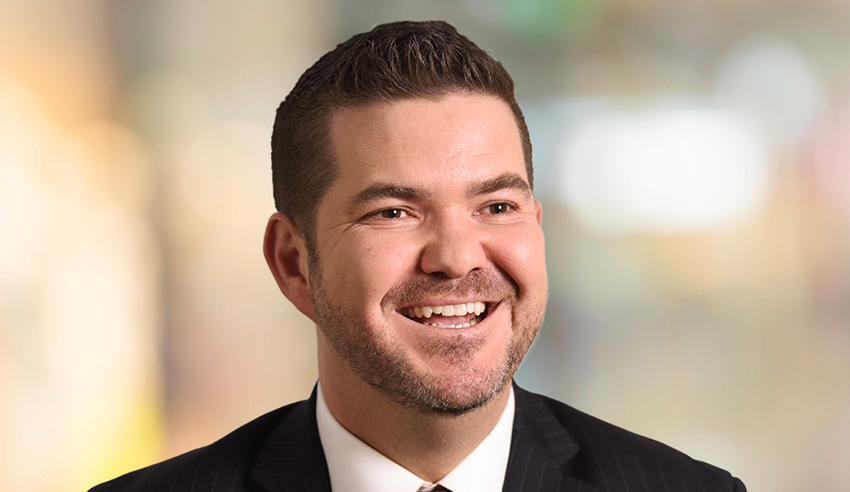Australian businesses believe that the risk of fraudulent activity, especially insider threats, will be increasingly prominent in 2021, posing challenges for law firms and legal departments alike.

Findings and observations
The findings show that 72 per cent of businesses think that their risk of fraud rose during the age of coronavirus, and 65 per cent say that their organisation is more vulnerable than pre-pandemic. The same figure, 65 per cent, also said that widespread remote working has increased said risk of fraud. Simultaneously, 62 per cent of businesses are of the opinion that employees are the biggest single source of risk, ahead of suppliers and contractors.
KPMG Forensic partner Dean Mitchell (pictured) said that the professional services giant was “surprised” to learn that so many businesses believe that the worst may still be on the horizon when it comes to fraud, “given that widespread remote working may start to ease during 2021. Experience has shown that many internal controls don’t travel well which would explain most finding the risks were higher last year”.
One potential explanation identified by Mr Mitchell was that, traditionally, a year or two passes before a fraud is identified, “and where there is an internal perpetrator, who knows the company systems and is able to cover their tracks, this period of fraud can extend further”.
“As a result, fraud is likely occurring right now but remains undetected. Over 40 per cent of respondents said they had been inhibited by the crisis from investigating allegations of fraud and over 30 per cent had had to delay anti-fraud and corruption programs – so their concern about rising fraud levels in 2021 may be understandable,” he said.
The survey further found that: 92 per cent of businesses believe that the risk of cyber fraud has increased since the onset of COVID-19; 67 per cent aren’t sure if their businesses have detected fraud in that time; 51 per cent said that their ability to investigate possible fraud has been compromised; and 25 per cent have been forced to delay anti-fraud programs.
Australian businesses are also, Mr Mitchell continued, increasingly turning to technology to help identify the fraud and corruption that was occurring in the new remote working world, with 38 per cent stating that they were now using artificial intelligence or forensic data analytics to identify fraud in their operations.
“Fraudsters leave traces when they attack organisations – clues that can be identified. In response, forensic analytics is needed but this is not simply deploying ‘off the shelf’ data tests to terabytes of data. An optimum response involves bringing together former fraud detectives, data scientists and forensic accountants to uncover the warning signs in your financial data,” he said.
Duty of law firms and legal departments
In conversation with Lawyers Weekly, Mr Mitchell said that now is the time for law firms across the board to be helping clients uncover fraud and corruption, and also assist them in seeing the bigger picture when fraud occurs.
“Too often, we rush to email review, document analysis and interviews without looking at the financial trail,” he posited.
“Every fraudster leaves an accounting fingerprint on everything they touch, the worst thing we can do is only uncover a small piece of a much bigger fraud, this deprives the organisation of the ability to fully recover on their insurance and assess their other recovery and employment options.”
GCs, CLOs and their law departments will also have a critical role to play, Mr Mitchell continued.
“One of the biggest takeaways is that 66 per cent of organisations are not entirely confident that they have found the fraud or corruption that could have been occurring in their organisations over the past year. Typically, the GC plays a key role in helping their organisation respond to fraud or corruption allegations, whether that’s bringing in specialist forensic investigators, computer forensic professionals or coordinating the internal response,” he outlined.
“However, the ability to respond has been hampered by COVID with 51 per cent reporting a reduced investigative capability, that means there is going to be lots of fraud undetected that will require a focused effort in the coming months.”
For both firms and departments, collaboration on fraud risk will be fundamental moving forward, Mr Mitchell stressed, given that businesses are “falling victim to fraud and corruption right now and they probably don’t know it”.
“COVID-19 has muddied the waters for fraud and corruption detection even more so than normal. This will require a team effort, the lawyers, forensic accountants, cyber professionals and data scientists to find those offending transactions,” he mused.
“Simply asking questions or looking at emails when fraud and corruption is suspected is dangerous and will unquestionably result in fraud going undetected, transactional review, forensic accounting and financial system analysis is critical.”
Are you looking to launch your own practice but not sure where to start? Lawyers Weekly’s Boutique Law Summit returns to Sydney this month, designed for individuals who are looking to maximise their competitive edge in a post-pandemic marketplace. The event will be held on Friday, 26 March at the Four Seasons Hotel with a full agenda available to view here. To learn more about the event, click here.

Jerome Doraisamy is the managing editor of professional services (including Lawyers Weekly, HR Leader, Accountants Daily, and Accounting Times). He is also the author of The Wellness Doctrines book series, an admitted solicitor in New South Wales, and a board director of the Minds Count Foundation.
You can email Jerome at: